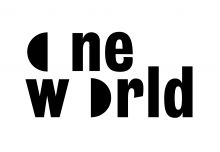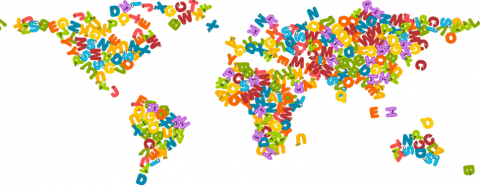What is psychological science?
Psychological science is the study of mind, brain and behaviour. Mind stands for mental activity, such as thoughts, feelings and perceptions. Mental activity is the result of biological (chemical) processes within the brain. Behaviour describes the totality of observable human (or animal) actions.
One of the aims of this textbook is to learn to think more critically. A critical attitude is required towards all kinds of information, especially information that seems logical. Scientists have to learn to be sceptical. Critical thinking involves systematic questioning and evaluation of the information at hand. It is important to ask critical questions and not to take information for granted. Critical thinkers have to look for alternative explanations of behaviour. Critical thinking involves looking for alternative explanations, detecting weak use of evidence and the use of logic. In addition, it is important to be open to new information and to examine whether a study might be influenced by personal or political interests. Also, think whether the used research designs are appropriate.
What are different types of inaccurate thinking?
- Confirmation bias: people evaluate information that is similar to the beliefs they already had as more positive. At the same time, they underestimate the value of information that is different from their own ideas.
- Seeing relationships that do not exist: it is often assumed that if two things happen at the same time, they should be related to each other; which is not the case. Often it is just a coincidence.
- After-the-fact explanations (hindsight bias): people often come up with explanations for why events happen, also when they have incomplete information. Evidence is reinterpreted in a way that fits better to the outcomes. As a result, existing evidence becomes biased.
- Mental heuristics: heuristics are decision rules that are followed to decrease the effort that it takes to make good decisions. However, using heuristics can also lead to more inaccurate decision making.
- Self-serving bias: People want to feel good about themselves, therefore, they think that they are better than average on a variety of aspects. To support this positive view, people credit personal strengths for successes whereas they blame outside forces for their failures. People also have difficulty recognizing their own weaknesses.
What are the scientific foundations of psychology?
Psychology originated in philosophy, in which the great thinkers tried to understand human nature. In the 19th century, psychology became an independent discipline with different schools of thought that dominated the field for a period of time.
The nature-nurture debate already started with Greek philosophers, such as Aristotle and Plato. The question is whether psychological characteristics are biologically determined or caused by the environment, for example by culture. Culture refers to the attitudes, norms and beliefs that are important within a group of people who share their language. The result of the debate is that there is always an interaction between genes and environment.
The mind-body problem involves the question whether the mind and the body exist separately from each other or whether the mind is a subjective experience of the brain. Early philosophers thought that the mind and body functioned separately from each other. Leonardo da Vinci was one of the first who attempted to connect mental functions to different brain areas. Around 1600, Descartes introduced another interpretation, which is called dualism. Dualism refers to the idea that the mind functions separately from the body, however, the mind and body are connected. The body was viewed as an organic machine that was led by reflexes. The other way round, many psychological functions, such as memory and imagination would be products of the body.
What was the start of experimental psychology?
In 1879, Wundt established the first psychological laboratory. He is seen as the founding father of experimental psychology. He introduced the principle of mental reaction times that an individual would need for a simple and a complex task. He thought that the difference between the time needed to accomplish a simple and a complex task, would be the time that the mental effort would cost. He wanted to measure conscious experiences as well. This was done by introspection: the study of subjective mental experiences in which (trained) individuals had to describe their thoughts. After some time, introspection was being rejected because it was subjective and not representative.
Titchener, one of Wundt’s students, used introspection as a foundation for his own new idea, namely, structuralism. This school of thought is based on the idea that conscious experiences can be divided in underlying basic elements.
James believed that it was not possible to divide the mind into different elements because the mind is way too complex. According to James, the mind existed of a never ending stream of thoughts that continually changed, called a stream of consciousness. According to James it was more important to examine the functions of the mind. This approach is called functionalism.
Darwin presented the evolutionary theory in his book 'On the origin of species'. Darwin reasoned that species change over time. Because some of these changes increase individuals' chances of survival and reproduction, these changes were passed along to future generations. These changes are called adaptations. He called this mechanism natural selection: the process by which changes that are adaptive are passed along and those that are not adaptive are not passed along.
What are the schools of thought?
In the twentieth century, the ideas of Sigmund Freud became popular. Freud started his career as a neurologist and he worked with people suffering from neurological diseases. He believed that their conditions were caused by psychological factors. He also believed that behaviour was elicited by unconscious mental processes. Freud thought that disorders were caused by unconscious (mostly sexual) conflicting mental forces. In psychoanalysis, the unconscious is made conscious in order for psychological conflicts to be solved. Solving these conflicts was done with the use of dream interpretation and free association. Free association means that the patient is encouraged to speak freely about everything that pops up in his mind.
Watson was the most important founding father of behaviourism and he thought that mental processes should not be studied because they are not directly observable. According to behaviourism, all kinds of behaviour are evoked by the environment (nurture). Every action is a response to a certain stimulus and it can be predicted by the stimulus. Skinner wanted to understand how behavior is shaped or influenced by the events or consequences that follow them. Until 1960, behaviourism was dominant but afterwards the focus shifted again towards mental processes.
According to the Gestalt theory, the whole is more than the sum of its parts, which also applies to personal experiences. The subjective experience is not just the sum of its different elements, which was thought by structuralists. According to Gestalt, the perception of objects is subjective and dependent on context.
Humanists such as Rogers and Maslow emphasize that an individual has to get to know and accept himself in order to reach self-actualisation and to treat psychological disorders. This approach emphasized the basic goodness of people. It focused on how people should work on personal goals and try to live up to their full potential as human beings.
Cognitive psychology refers to the study of higher mental functioning, such as intelligence, thinking, language, memory and decision making. From cognitive research, it became clear that thinking influences behaviour. At the same time the computer was introduced. The cognitive psychologists were initially interested in software (the mind) but around 1980 their interest in hardware grew. In this time cognitive neuroscience arose, which is focused on the brain and the nervous system as underlying mechanisms of thinking, learning, perception, language and memory.
What are the latest developments in psychology?
A lot of progress has been made in understanding brain chemistry. Since the late 1980s, researchers have been able to study the working brain as it performs its vital psychological functions, because of brain imaging methods. Research has made it clear that there is some localization of function. To discover which brain areas are connected and work together in performing tasks, the Human Connectome Project was launched in 2010.
Scientists also have made enormous progress in understanding the human genome: the basic genetic code for the human body. Almost all biological and psychological activity is affected by the actions of multiple genes.
The evolutionary approach
According to evolutionary psychology, mental traits are seen as products of natural selection. Functions such as memory, perception and language can be seen as adaptations. Adaptations are facial characteristics, skills or other actions that increase the likelihood of reproduction and survival, therefore, they are inherited to the next generations. There is growing evidence that the brain adapts biologically and that the mind adapts under influence of culture.Through natural selection we received built-in mechanisms that solve adaptive problems from the past. In the past, sweet foods with a lot of calories were scarce. This kind of food had a great survival value and a preference for fatty and sweet foods was adaptive. Nowadays, people still have this preference but it leads to maladaptive behaviour, as it can make people obese.
What is the role of culture in providing adaptive solutions?
Cultural evolution goes much faster than biological evolution. In the last century, great changes have occurred in the way people interact. The flow of people, commodities, and financial instruments among all regions of the world are referred to as globalization. Also the internet has created a new form of culture. According to Nisbett, members of Asian cultures think more holistically than members of Western cultures (that are more individualistic). People from Asia think less analytically compared to people from Europe and North America. This difference might be caused by a different history. The culture in which one is living determines the norms and beliefs someone has. Norms specify which behaviour is expected from the people living in a certain culture. Culture plays an important role in shaping how people view and reason about the world around them.
Which different levels of analyses are present in psychological science?
The social approach looks at how group contexts affect the ways in which people interact and influence each other. The biological level of analysis deals with how the physical body contributes to mind and behavior. The cultural level explores how people's thoughts, feelings and actions are similar or different across cultures. Psychological science emphasizes the importance of examining behavior across multiple levels in an integrated fashion. Often psychologists collaborate with researchers from other scientific fields, such as biology. Collaborations are called interdisciplinary.
Psychologists are working in different fields which are described here:
Neuroscientists and biologists study the influence of biological systems on mental activity and behaviour.
Cognitive psychologists look at how people think, perceive, solve problems, make decisions, use language and learn new skills.
Developmental psychologists study the development of individuals during the life-span.
Personality psychologists are interested in traits of people and how these traits differ per context. They also look at differences between individuals.
Social psychologists try to understand how people are influenced by the presence of others and how people perceive others.
Cultural psychologists study how people are influenced by societal norms that belong to a certain culture.
Clinical psychologists study factors that might cause psychological difficulties and they search for treatments.
Counselling psychologists try to improve daily well-being of people. The difference with the clinical psychologist is that a counselling psychologist is more focused on a difficult situation in which one is currently rather than treating psychological disorders.
School psychologists are working in education where they help students with learning difficulties.
Psychologists are working in other fields too, such as forensic settings or sports. For example, health psychologists are working interdisciplinary and study factors that influence physical health.
The most important things you need to know
Psychological Science is the study of mind, brain and behaviour. Mind refers to mental activity, which is a consequence of biological processes in the brain. Amiable skepticism means being open to new findings, but also aware of whether there is scientific supporting evidence. Critical thinking is the ability to question and evaluate information, using evidence. Biases in thinking include ignoring evidence (selective memory) ,accepting after-the-fact explanations, taking mental shortcuts (following heuristics). Movements in psychology include experimental psychology (focused on structure) ,introspection (subjective mental experiences), structuralism (conscious experience in elements) ,functionalism, behaviorism (how environment impacts behaviour) ,humanistic psychology (self-actualization) ,cognitivism (how internal states influence behaviour).
Voor volledige toegang tot deze pagina kan je inloggen
Inloggen (als je al bij JoHo bent aangesloten)
Aansluiten (voor online toegang tot alle webpagina's)
Hoe het werkt
- Om alle online toegang te krijgen, kun je je aansluiten bij JoHo (JoHo Membership + Online Toegang)
- vervolgens ontvang je de link naar je online account en heb je online toegang
Aanmelden bij JoHo

- Study guide with Psychological Science by Gazzaniga
- What is the science of psychology? - Chapter 1
- Which research methods are used in psychology? - Chapter 2
- How does biology influence behavior? - Chapter 3
- What is the difference between conscious and unconscious processes? - Chapter 4
- How do the processes of perception and sensation work? - Chapter 5
- How do we learn? - Chapter 6
- How does memory work? - Chapter 7
- What is the psychological view on thinking, language and intelligence? - Chapter 8
- What is the psychological perspective on human development? - Chapter 9
- How do emotions and motivations work? - Chapter 10
- Which factors can influence health and well-being? - Chapter 11
- What is social psychology? - Chapter 12
- How does psychology view personality? - Chapter 13
- What are different psychological disorders? - Chapter 14
- How are psychological disorders treated? - Chapter 15
- Summaries and study assistance with Psychological Science by Gazzaniga – Booktool
- 1 of 2
- volgende ›
Chapters
Teksten & Informatie
JoHo 'chapter 'pagina
Wat vind je op een JoHo 'chapter' pagina?
- JoHo chapters zijn tekstblokken en hoofdstukken rond een specifieke vraag of een deelonderwerp
Crossroad: volgen
- Via een beperkt aantal geselecteerde webpagina's kan je verder reizen op de JoHo website
Crossroad: kiezen
- Via alle aan het chapter verbonden webpagina's kan je verder lezen in een volgend hoofdstuk of tekstonderdeel.
Footprints: bewaren
- Je kunt deze pagina bewaren in je persoonlijke lijsten zoals: je eigen paginabundel, je to-do-list, je checklist of bijvoorbeeld je meeneem(pack)lijst. Je vindt jouw persoonlijke lijsten onderaan vrijwel elke webpagina of op je userpage
- Dit is een service voor JoHo donateurs en abonnees.
Abonnement: nemen
- Hier kun je naar de pagina om je aan te sluiten bij JoHo, JoHo te steunen en zelf en volledig gebruik te kunnen maken van alle teksten en tools.
Abonnement: checken
- Hier vind je wat jouw status is als JoHo donateur of abonnee
Prints: maken
- Dit is een service voor wie bij JoHo is aangesloten. Wil je een tekst overzichtelijk printen, gebruik dan deze knop.





















